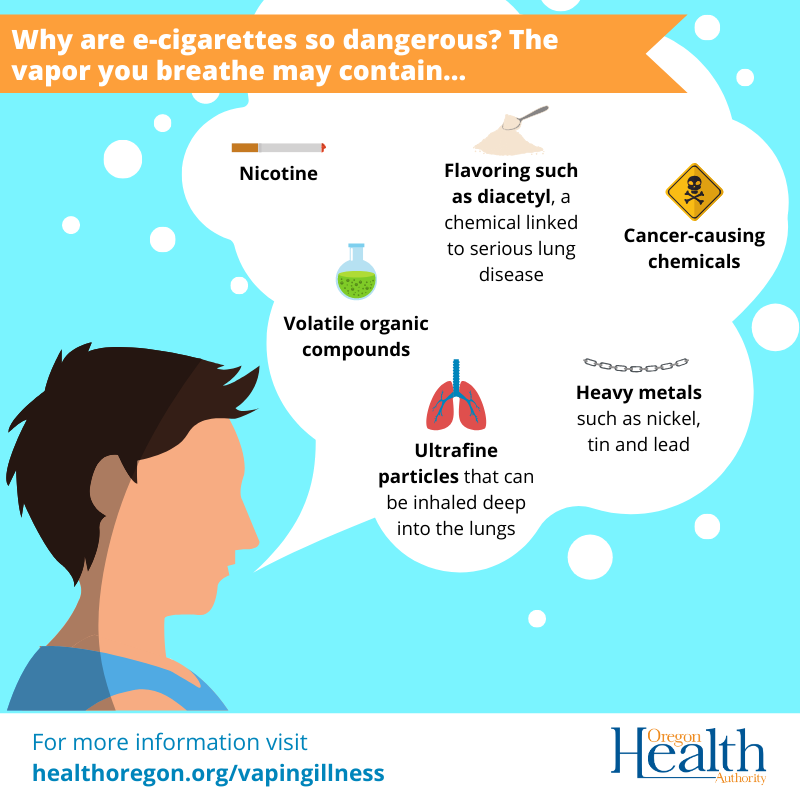Electronic cigarettes (e-cigarettes), also known as vapes, are not risk-free and can be harmful to your health. While often perceived as a safer alternative to traditional cigarettes, they expose users to various harmful substances.
Key Health Concerns:
- Nicotine Addiction: Most e-cigarettes contain nicotine, a highly addictive substance. Nicotine can harm adolescent brain development, which continues into the early to mid-20s. It can also pose risks to fetal development during pregnancy.
- Exposure to Harmful Chemicals: The aerosol produced by e-cigarettes is not merely water vapor. It can contain:
- Volatile Organic Compounds (VOCs): These can cause eye, nose, and throat irritation, headaches, nausea, and damage to the liver, kidney, and nervous system.
- Flavoring Chemicals: Some flavorings, such as diacetyl, have been linked to serious lung diseases like bronchiolitis obliterans (popcorn lung), although its prevalence varies. Many flavorings safe for ingestion may not be safe for inhalation.
- Carcinogens: Chemicals like formaldehyde and acetaldehyde, which are known carcinogens, can be formed when e-liquid is heated.
- Heavy Metals: Metals like nickel, tin, and lead can be released from the heating coil and inhaled.
- Ultrafine Particles: These can be inhaled deep into the lungs and may cause inflammation and contribute to respiratory and cardiovascular problems.
- Lung Injury: E-cigarette use has been associated with lung inflammation and damage. Cases of severe lung injury, known as e-cigarette or vaping product use-associated lung injury (EVALI), have been reported. While strongly linked to THC-containing products with vitamin E acetate, other e-liquid components may also contribute to lung issues.
- Cardiovascular Impact: Nicotine is a stimulant that raises blood pressure and heart rate. Chronic exposure may increase the risk of cardiovascular disease.
- Impact on Specific Populations:
- Youth and Young Adults: They are particularly vulnerable to nicotine addiction and its effects on brain development. E-cigarette use can also be a gateway to other tobacco products.
- Pregnant Individuals: Nicotine and other chemicals in e-cigarettes can cross the placenta and adversely affect fetal and postnatal development.
- Non-Smokers: Initiating e-cigarette use introduces unnecessary health risks and the potential for nicotine addiction.
While e-cigarettes might expose users to fewer toxic chemicals than traditional combustible cigarettes if an adult smoker completely switches, they are not harmless. The long-term health effects are still not fully understood due to their relatively recent introduction to the market.

Therefore, the safest approach is to avoid all forms of tobacco products, including e-cigarettes. If you do not currently smoke or use tobacco, do not start vaping.










